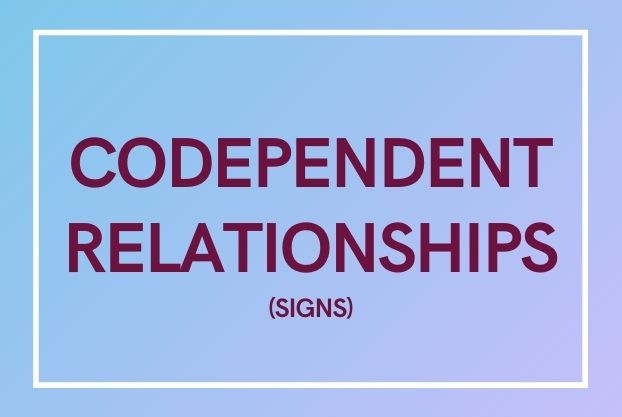If you’re the kind of person who tends to make sacrifices for your partner’s happiness without much in return, tie your self-worth to your partner’s satisfaction with you and tend to forgive your partner even to your own detriment- there’s a high chance that you’re currently in a codependent relationship.
What is Codependency?
Codependency can be explained as a pattern of behavior in which you tie your own self-worth and identity to your partner’s approval. Often, you lose sight of your own goals and personality, just so that you can please them and maintain the relationship you already have. It could be just one of you doing so, or both; codependent partners tend to cling together in a manner that is unhealthy.
Signs of Codependency
There are some obvious signs that you are in a codependent relationship. Those are easily identifiable, but not necessarily easy to work through. Then there are some subtle signs that are hard enough to identify for yourself, especially when you need to face them. Codependency tends to describe behaviors and tendencies in a relationship rather than the relationship itself.
1. Low self-esteem: Codependent partners tend to tie their self-worth to their partners, which means that the slightest sign of disinterest can cause feelings of worthlessness. “Being needed” feels gratifying, even if there is no gratitude from the recipient.
2. Lack of Boundaries: The need to make others happy is often all-consuming to the point that you sacrifice your own needs and happiness for it. This shows that you have a tendency to forgive any violations of your own boundaries, lest you make someone else unhappy.
3. Savior Complex: A lack of boundaries means that you tend to put others ahead of you. You tend to want to protect your partner from anything “bad”, even if the “bad” is their actions. You tend to make excuses for their behavior, and defend them- this is detrimental to not only you, but your partner as well as it hinders their self-growth and ability to learn from mistakes. It also tends to make you an unknowing enabler, pushing them to continue their abuse or addictions because you deny the need for consequences.
4. Self-Denial: Putting others before yourself automatically means that you take a backseat in your own life. Codependent people tend to feel uneasy when others offer support. They give up their own mental and physical health, their need for rest and self-care. They tend to feel guilty and anxious for voicing their needs, which means that it often goes unaddressed.
5. Perfectionism: Codependent people tend to project a very independent image, wanting to be seen as self-reliant and competent. They tend to take on more than they can handle. Any sign of dissatisfaction with their actions tends to throw them into a spiral of insecurity.
6. Need for control: Tying one’s self-worth to someone else’s life means that the slightest derailment in your partner’s life makes you think that you have failed them. In order to avoid that feeling, you might tend to get possessive or controlling.
Codependency is not just about you, it's about your partner and their behavioral patterns as well. Both of you tend to get exhausted and burnt out from trying to maintain a relationship. While the obvious answer for most people would be to end the relationship, breaking up is often not the solution. Codependent tendencies will inevitably spill over to all your relationships. It's important to work through these issues of identity and self-worth and find satisfaction in other avenues in life. Doing so means that you have to confront the cause of codependency, something you can do with a trained therapist at Another Light.

